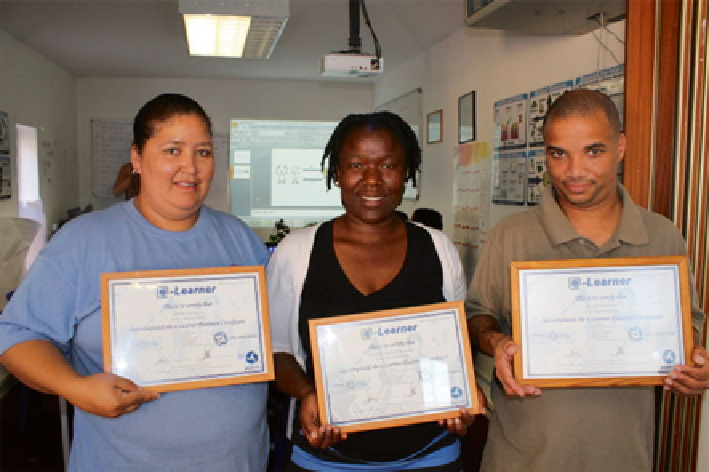Environmental Engineering Reference
In-Depth Information
Fig. 10.2
Several DCCT staff members received e-Learner certifi cates from ICDL
4.2
Timing
The initial phase of the ICT interventions dealt with a variety of text relay systems.
The fi rst to be trialled with a Deaf user revealed that Deaf people were very self-
conscious about their typewritten text (Tucker et al.
2003
). A later iteration, called
SIMBA (Sun and Tucker
2004
), was installed at DCCT's PC lab. This lab was
funded by industry and governmental research donors. The ethical issues of such
funding in terms of control have been minimal as our funders allow DCCT and us
to drive the research agenda independently. On the other hand, the nature of the
business practices deployed in order to provide such 'social responsibility' funding
could raise additional ethical questions. Regardless, the funding was provided
for the purpose of introducing and trialling alternative and exploratory ICT inter-
ventions. Along with members of DCCT, we identifi ed Thursday afternoons as a
good time to trial the instant messaging (IM) and SMS-based text relay. We ran into
the problem that actually, the Deaf people could not call anyone since the people
they wanted to call were working and could not take calls. Travel to and from DCCT
was also problematic (see Sect.
4.8
). This highlights issues covered by Sect.
2.1
.
4.3
Setting the Research Agenda
This section highlights issues covered by Sect.
2.2
. In truth, the Deaf community
did not ask for the text relay phase of projects or any of our projects up until

Search WWH ::

Custom Search